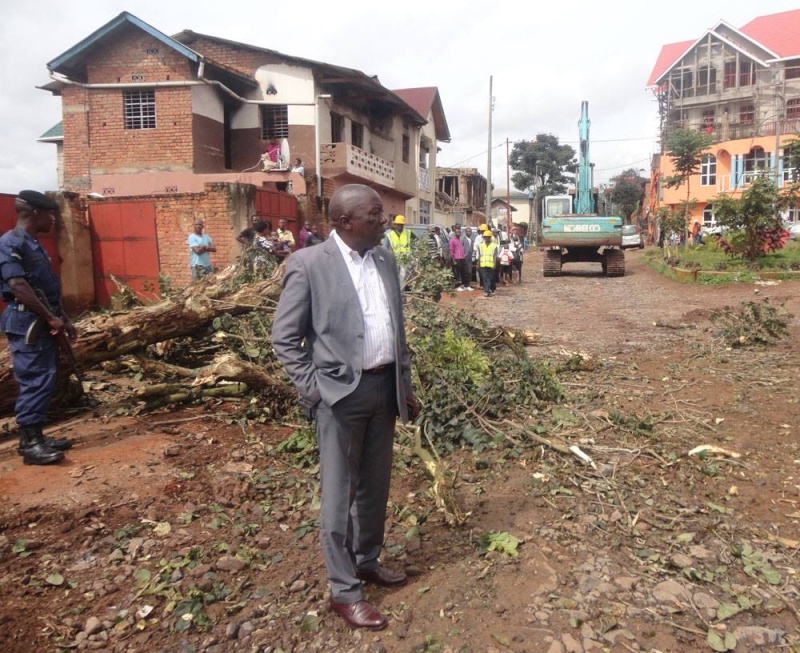BUKAVU — Heavy machinery from the Office of Road Work and Drainage (OVD) rumbles, grinds and rat-a-tat-tats along Kibombo avenue in this city on the eastern edge of the Democratic Republic of Congo.
A bulldozer has torn down the walls of a religious convent, a hotel and a radio station. Various homes and shops are felled as well. Some property owners acted preemptively, hiring workers to start dismantling the stones and bricks even before the OVD machines showed up — but others complain that they weren't properly warned.
Whatever the case, the demolition is now very much underway, here as well as along neighboring roads like Kasongo avenue, where some 30 buildings have already been destroyed. The goal is to remove unauthorized homes and businesses that have encroached over the years along the city's main avenues.
Walking amid the rubble and battered bits of corrugated iron is Kalenga Riziki, the provincial planning minister. "People who have built along the path of the road should take it up upon themselves to start destroying those structures," he says. "If they don't, the State will do the job for them. We’re determined to return the city to how it used to be."

Bukavu Mayor Philémon Yogolelo Lutombo in Bukavu — Photo: Skyscraper City forum
Onlookers are surprised to see tar under some of the rubble and torn-up gardens. "Back in the 1960s, Kibombo and Kasongo avenues each had two or three lanes," Symphorien Kashemwa, a man in his 70s, recalls.
Serge Barhayiga, a top-level planning official, concurs, saying he has an old city map to prove it. "The idea is to clear six meters along the width of the avenue, plus up to another two meters for the sidewalk," he explains.
Barhayiga says people really started to build on the edge of the roads during the Congolese Rally for Democracy rebellion (1998-2003) — a period marked by a real-estate boom, illicit mineral trafficking and overall lack of oversight on the part of the government. "Most of the agents involved in all this maneuvering are now dead," he adds.
But Descartes Mponge, a local civil society leader whose office is on Kibombo avenue, says some of the structures are only two or three years old and were built with the complicity of officials acting in the name of the State.
Michel Kabote, an advisor to Minister Riziki, says such cases are isolated. "This is a post-conflict country. There are people who built in a dishonest way, using military officers to intervene on their behalf, calling in favors from Kinshasa, and working between 3 a.m. and 5 a.m., or only on Sundays."





